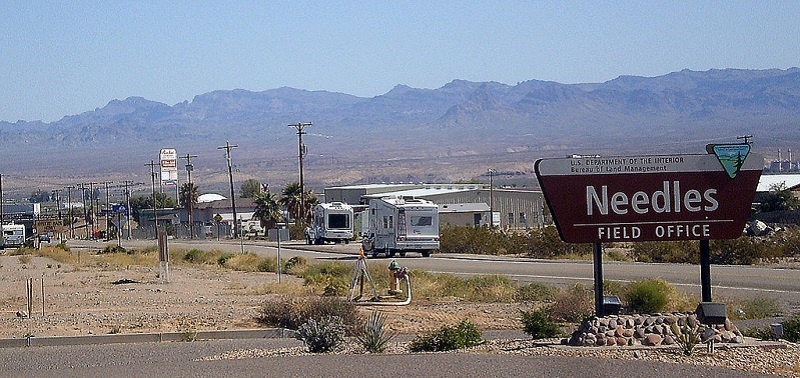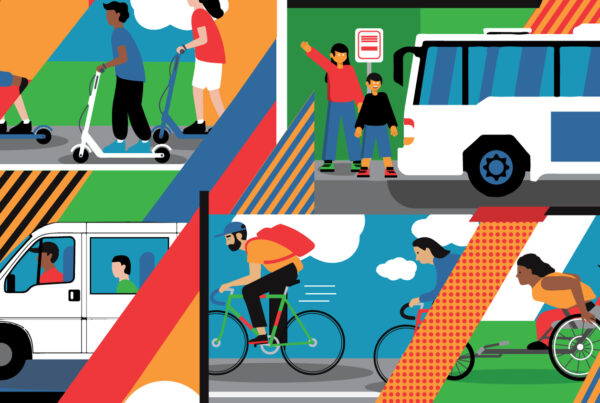When the Joad family stopped in Needles, CA in The Grapes of Wrath, the town was the “Gateway to California,” a small but popular way station along Route 66.
Over the last 50 years, however, Needles has been in a state of slow decline. Today, more than a quarter of its 4,000 residents live below the poverty line. And, unlike the Joads, many of them don’t have a car.
Adding to the town’s transportation challenges is that it’s perched on the edge of both Arizona and Nevada. The nearest grocery stores, medical offices and other amenities are just over the border in cities like Laughlin, NV or Bullhead, AZ—not far, but not reachable via public transit since they’re across state lines.
The result is that car-less residents, including senior citizens and affordable housing tenants, are fairly isolated.
“Needles has some fast food chains and a liquor store. They had a 99 cent store and Dollar General, but they both closed,” said Aaron Moore, Consolidated Transportation Services Agency Director at the Victor Valley Transit Authority (VVTA), the transit agency that serves the area. “Just about everything is across the border.”
As Moore wrestled with ways to address transportation access in Needles, he wondered – what if there was some way that the agency could help people transport themselves across state lines? VVTA was already working with Enterprise Rent-A-Car on a vanpooling program, so Moore reached out to see what it would take to launch a small carshare program.
Launching Needles CarShare
To convince Enterprise to operate on such a small scale, VVTA offered to guarantee a monthly minimum payment to cover the program’s costs regardless of usage. The company agreed, and Needles CarShare officially launched on August 8, 2016.
The program features two cars, a Nissan Altima and a Dodge Caravan, which are parked outside the local credit union. Members pay just $5 an hour to use a car, including insurance and fuel. Thanks to the VVTA subsidy, there is no membership cost or sign-up fee.
To help provide access to residents who don’t have credit cards, VVTA also worked with a local financial company to create payroll debit cards that people can use to sign up for the program.
One year in, Needles Car Share is a success story. According to Moore, the program has about 50 members and higher than average utilization. The minivan is especially popular.
“A lot of times we’ll have families chip in and split the cost four ways, so four families can all go grocery shopping at the same time using the van,” said Moore.
Additionally, the revenue generated has covered about 70 percent of the program’s cost, leaving VVTA to pick up only 30 percent of the guarantee, much less than anticipated.
At two cars, Needles CarShare is not large by any standards. But it has definitely had a big impact on residents who use the program to access fresh food, medical care and more.
You can find more information on new mobility solutions for rural areas in SUMC’s recent posts about the Green Raiteros pilot project and Liberty Mobility Now. Keep up to date on the latest industry news by signing up for our weekly newsletter.
Image credit: James Brooks



